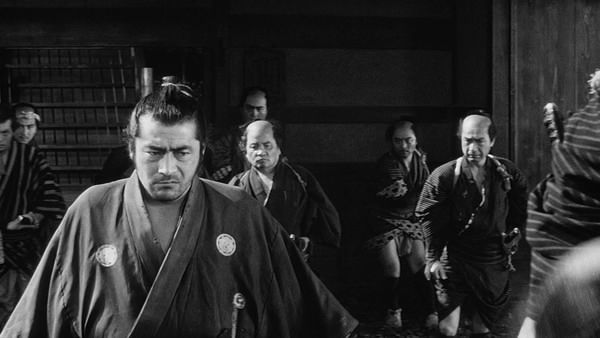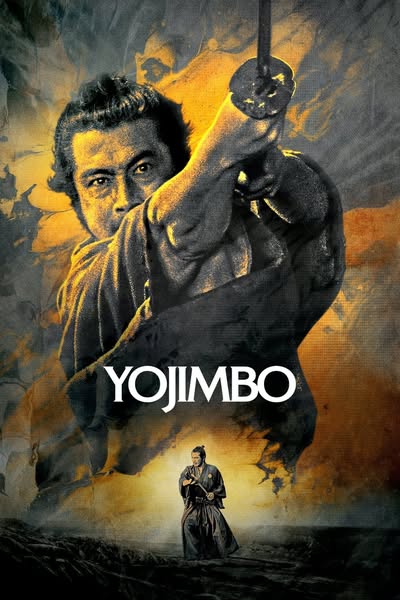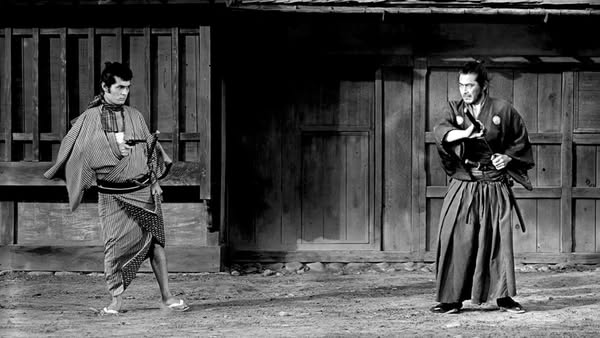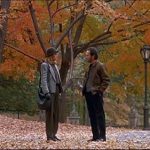Yojimbo (1961)

“Yojimbo,” directed by Akira Kurosawa and released in 1961, is a landmark film that has significantly influenced the samurai genre and cinema as a whole. Set in Japan during the Edo period, the film follows a wandering ronin, played by Toshiro Mifune, who arrives in a small, war-torn town rife with corruption and conflict between two rival gangs.
The story begins as the nameless samurai, seeking work and a peaceful life, quickly realizes that the town is controlled by two factions vying for power. Demonstrating both cunning and combat skills, he cleverly plays the two sides against each other while simultaneously seeking to restore order. His ambiguous morality creates a complex character who embodies the archetype of the lone hero, navigating a landscape filled with greed and violence.

Kurosawa’s direction is masterful, employing dynamic cinematography and innovative framing that enhance the film’s tension and action sequences. The film is notable for its use of wide shots, allowing for the choreography of fight scenes to unfold with clarity and impact. The screenplay, written by Kurosawa and co-writer Ryūzō Kikushima, is sharp and engaging, filled with wit and dark humor that contrasts the film’s violent undertones.

Mifune’s performance as the ronin is iconic, showcasing his ability to convey both strength and vulnerability. His character’s journey is not just about physical battles; it also explores themes of loyalty, honor, and the consequences of one’s choices. The interactions between Mifune’s character and the townspeople reveal the complexities of human nature and the search for meaning in a chaotic world.

The film’s influence extends beyond Japan, inspiring numerous Westerns, including Sergio Leone’s “A Fistful of Dollars,” which directly borrows from its plot and themes. “Yojimbo” is also credited with shaping the portrayal of antiheroes in cinema, paving the way for future characters in various genres.
Overall, “Yojimbo” is a seminal work that combines action, drama, and moral ambiguity, establishing itself as a classic in world cinema. Its blend of stylistic innovation and compelling storytelling makes it a must-see for film enthusiasts, and its themes continue to resonate with audiences today. Kurosawa’s vision and Mifune’s unforgettable portrayal ensure that “Yojimbo” remains a timeless masterpiece in the annals of film history.











